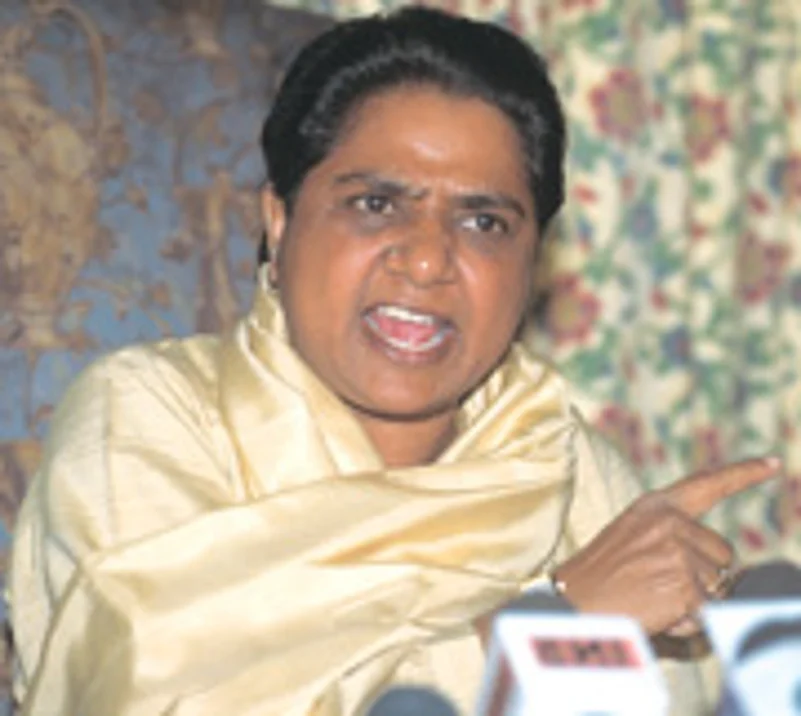
Mayawati |
Popularity: Has a very solid transferable Dalit base that she has built on with inclusion of Brahmins in UP. Poised to be an all-India force.
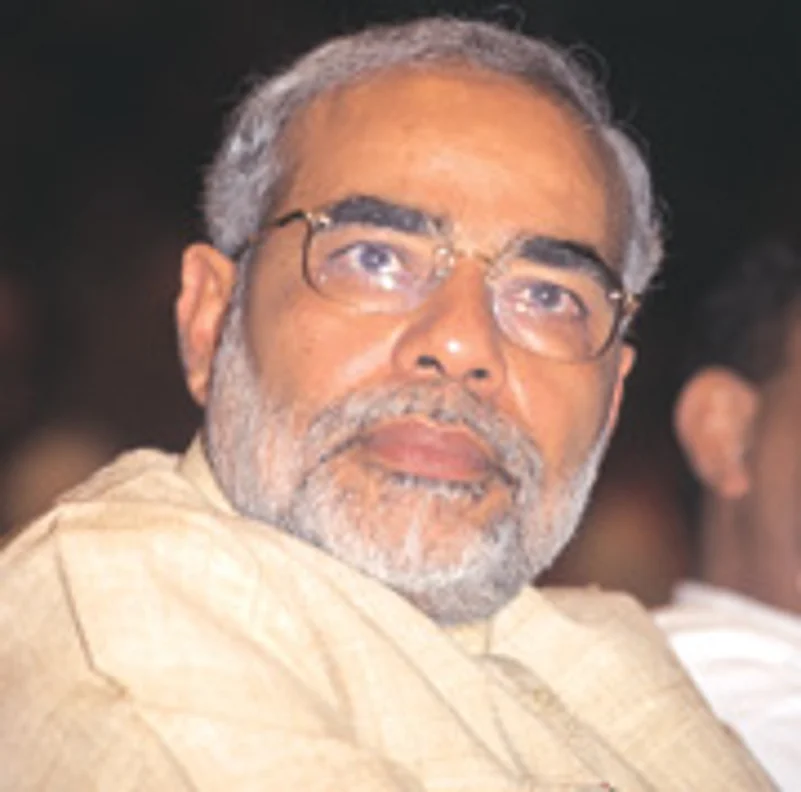
Narendra Modi |
Popularity: Very popular in home state. Trying to become a middle-class icon across India. But is despised by many, and feared by others in BJP and NDA.
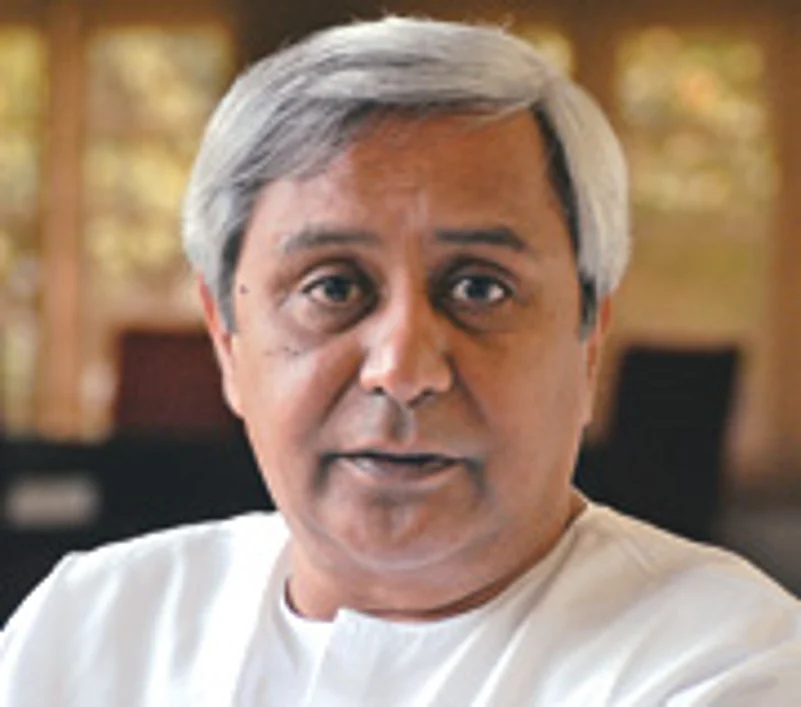
Naveen Patnaik |
Popularity: His popularity extends across social strata. This is because of his clean image.
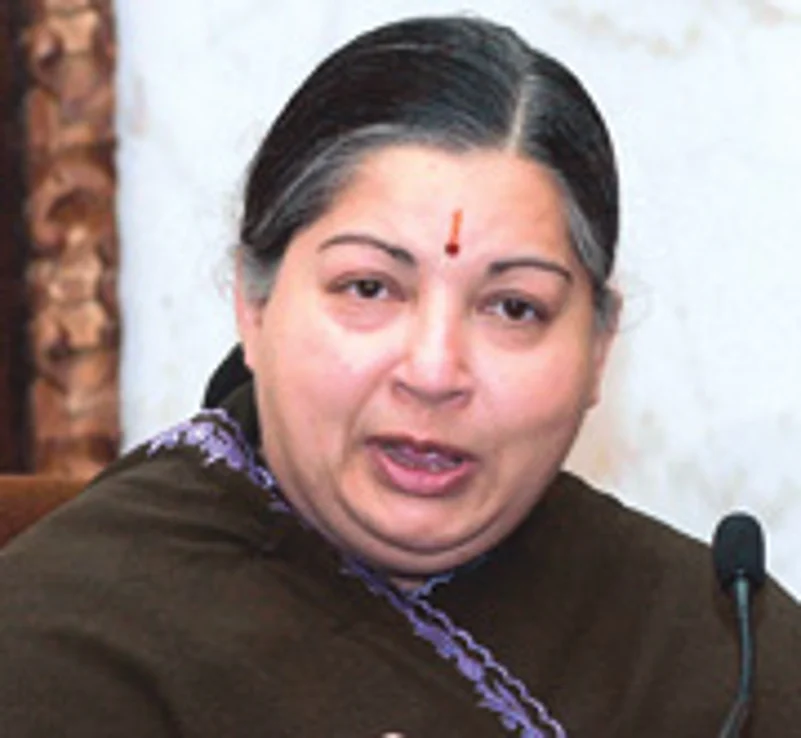
Jayalalitha Age: 60 Party: AIADMK |
***
"Wherever I go, I meet myself."
—Zen master Tozan Ryokai
Indian politicians are not known to live by the teachings of Zen masters. Instead they follow their own ambitions and destinies. Increasingly, however, the more successful players in the great Indian democratic circus are solitary souls who operate alone, away from the political din. They maintain an inner distance even when surrounded by people. And they often wear the armour of arrogance. Jayalalitha, Mayawati, Narendra Modi and Naveen Patnaik are four very different individuals. Yet they are linked not just by their political success but also by a few personal traits: all are single and have no offspring to promote. Perhaps they are lonely. What is more certain is that all are powerful.
Take J. Jayalalitha and Mayawati for instance. Two women who have risen to great heights in a man's world. And both taking great delight in having people prostrate before them. The enduring image of Jayalalitha is not visuals of her as a cine star or as companion to mgr. It is of the good men of the AIADMK lying flat on their bellies, hands folded in humble supplication before an imperious queen. Of course, no ordinary mortal can have accumulated such aura. And Jayalalitha has managed to be chief minister of Tamil Nadu three times and is still the clear alternative to the ruling DMK. Her life has had an Eva Peron-like drama and grandeur. Says historian Ramachandra Guha: "Her great achievement was to break through the male-dominated Dravida movement and rise to the top."
Sure, it's lonely at the top but Jayalalitha prefers it that way. Living in splendid isolation in her Poes Garden home in Chennai, she has only one close confidante—Sasikala—whom she briefly fell out with but then patched up. She doesn't trust people easily and certainly doesn't turn to lesser mortals for advice. Currently there is one C. Ponnaiyan, a former minister who was out of favour but has now been given the title of political advisor. However, Jayalalitha takes all the decisions herself. She is hard-headed and gives all potential allies a difficult time. Last month, it seemed that Queen Jaya had stooped to conquer when she hosted a 45-course lunch for Narendra Modi. But the BJP remembers the manner in which she made A.B. Vajpayee wait for days for a letter of support to form a government in 1998. Within a year, she withdrew that support, forcing another general election. She has feelers from the NDA for the 2009 elections but is expected to fight alone and then demand her pound of flesh when all sides scramble to form a coalition.
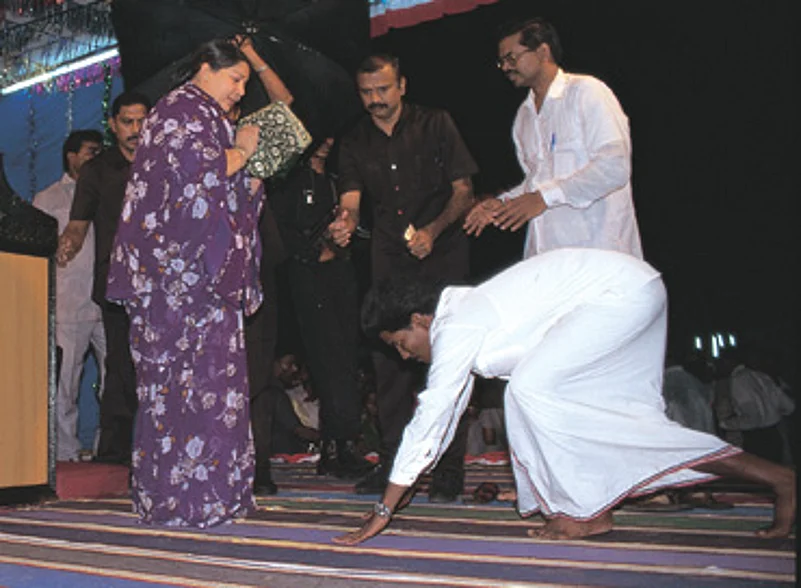
Puratchi thalaivi: Whose very presence is a humbling experience
A colourful personality, an important political force and a true autocrat, Jayalalitha has many more lives to live. Cho Ramaswamy, editor, Thuglak, says "she is authoritative, not authoritarian". Semantics apart, when in power, the woman they call Puratchi Thalaivi (revolutionary leader) does operate like an empress. On her birthday, loyalists would take out full-page ads describing her as the "Mother Goddess" and "Saviour of Tamil Nadu". One group of women devotees led by an MLA famously wore grass skirts to pray for the leader's long life. One of her ministers rolled on the ground outside a temple to bring her good luck. Jayalalitha seemed unmoved.
If anyone can outdo Jayalalitha in queenly demeanour, it is Mayawati, now serving her third and most decisive term as chief minister of Uttar Pradesh. Says sociologist Ashis Nandy: "Mayawati has come up the very hard way, thrown up by a previously marginalised section of society and is now very autocratic. Someone like her has lost her private life to her public self. Her power is growing but she is not the sort of leader any alliance would trust unless they have no choice. She has to fight for everything. " And fighting she still is, despite being the CM. This month, full-page ads have begun to appear in national and local dailies across the country extolling the virtues and achievements of Mayawati and her BSP. Her prime ministerial ambitions are no secret and she is clearly in the midst of a systematic plan to expand her party's voteshare across the land.
Mayawati has imbibed well the lessons of caste arithmetic, Dalit empowerment and pulling mass crowds. But she does not belong to the old breed of leaders who found it necessary to organise durbars, pose with family or be in actual physical contact with their followers. Leaders like her make the Laloo Yadav style of politics seem distinctly passe. Laloo would happily pose with Rabri, his children and even his cows (that he occasionally milked for visitors). Mayawati sits on a throne, then stands and raises her hand in an acknowledgement of her own power.
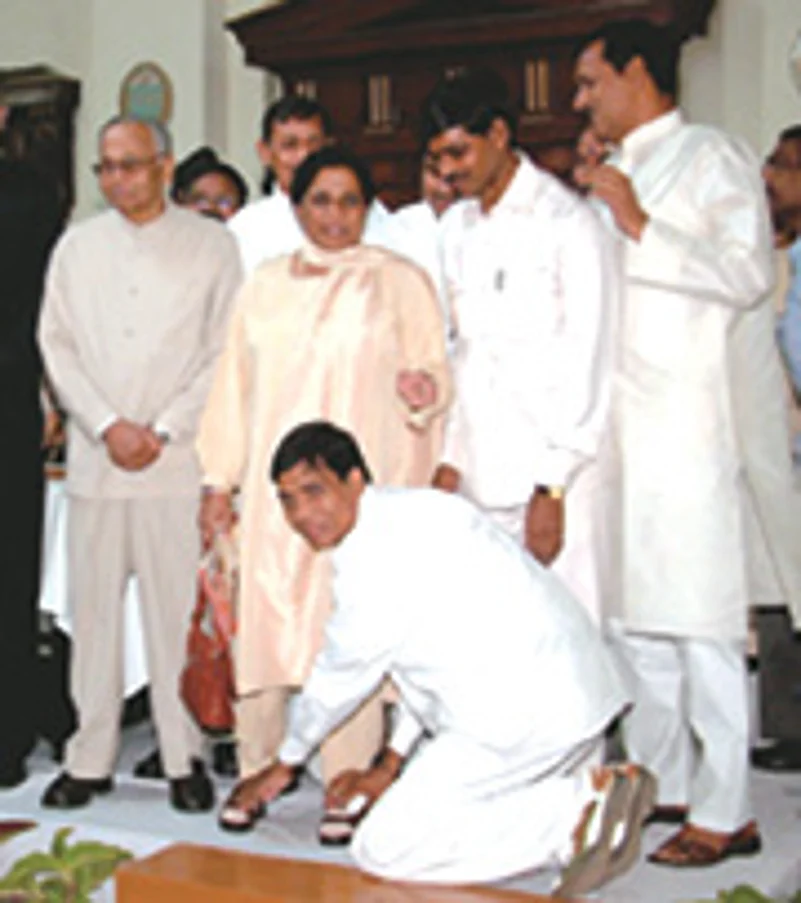
| Goddess of small things: Blessed are those who beseech Mayaji |
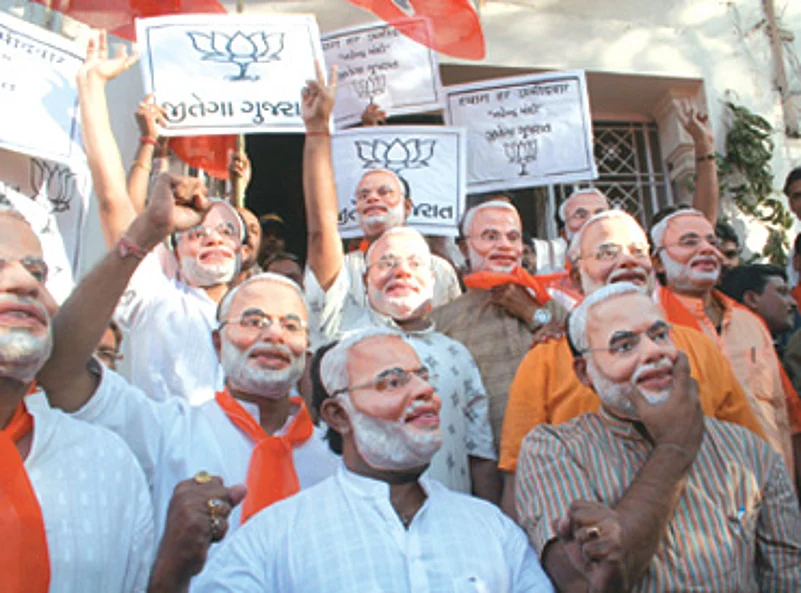
Narendra Modi, on the other hand, sees a diehard secularist in most English-language journalists. But he does make time for those who have proven their ideological or personal loyalty to him. Other than that, the man is a complete loner. He seeks people only for a purpose. An audience of businessmen so that he can hold forth on his "vision" for investment. A public rally where he can display his flair for rhetoric. Like the other solitary souls, there is no retinue of hangers-on, fixers, brothers, mothers, or children.
If Modi doesn't appear to be the least bit lonely, it is because he seems quite enamoured of himself. The more the number of men wearing Modi masks, the broader his grin at election rallies. He has taken the cult of personality to levels unimaginable in a party like the BJP. Even his national ambitions are of promoting Modi as being "bigger and tougher" than the BJP. His overriding nature does not allow him to treat colleagues as equals. A narcissist to the core, he inhabits his own universe even as he plans to conquer the world.
Orissa chief minister Naveen Patnaik is too well-bred to brag about himself or his success in politics. But he has displayed a ruthless streak in cutting down those who had tried to use him as a puppet or a mere figurehead for his legendary father, Biju Patnaik. Ruling a state for eight years when he does not speak the language must be difficult. Coming after leading the high life in Delhi and across the globe, he has become something of a hermit in Orissa. He lives in the family home quite alone except for the annual visit from his sister and mother. Today no one takes him lightly and has finally begun to ask: what makes Naveen tick?
He has turned his weaknesses into strength. At public rallies, he speaks a bit of Oriya, then apologises for switching to Hindi (of the burra sahib variety). The crowd claps. The fact that he has a clean image also works in Orissa—a state with a poor population and rich mineral resources. Patnaik remains more popular in rural areas. He may not have mastered the native tongue but he has displayed a native cunning in quietly outstepping rivals. The BJD has been growing at the expense of alliance partner BJP, and Patnaik is likely to cut the national party's quota in the next round of seat-sharing for the state and general elections that will take place simultaneously. He is not brazenly autocratic like Mayawati or Modi. But he can cut people down to size by looking through them, switching the subject or simply switching to English. That can be more devastating than the choice Hindi abuse Mayawati is known to hurl when angry.
Being a solo player clearly has some advantages in politics. There is no baggage of family, ambitious children or disreputable relatives. Ram Guha adds: "The fact that Naveen was not promoted by his father adds to his appeal. There is a trend to have strong personalities around whom parties are built. I agree that the old-style political system where multiple leaders survived within a state unit is giving way." But a healthy political party should ideally have several layers of leadership. In the above quadrangle of leaders, it's their personalities which rule and their word that counts.
By Saba Naqvi Bhaumik with Pushpa Iyengar in Chennai and Sharat Pradhan in Lucknow
























